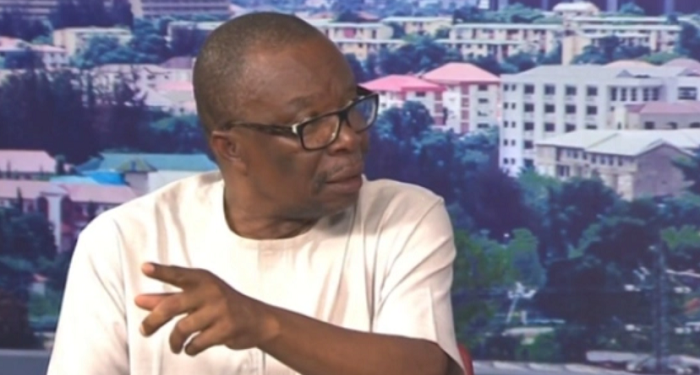Economic experts and analysts have chimed in on the trending conversation, “japa”, which has seen a handful of the Nigerian labour force resign from their work, due to travelling abroad.
Experts have highlighted the benefits that this brain drain/japa syndrome could bring to the largest African economy, but not without its downsides.
In a recent Nairametrics article, human Resource managers reported massive resignations by employees in the month of July, with many more expected in August as many Nigerians seek to travel abroad for academic pursuit and ultimately in search of a better life.
According to the United Nations International Migration report, as of 2020, a total of 1.67 million Nigerians were international migrants around the world. While some analysts have hinted at the potential downsides effect of the brain drain on the Nigerian economy, some analysts have noted the possible benefits of such migrations to the source country and the international community as a whole.
Amongst the benefits highlighted by the experts include, increased diaspora remittances, an upgrade in remuneration for loyal employees, decline in the level of unemployment in the source country among others. However, on downsides, skill gap and decline in productivity were listed as possible outcomes.
Experts Weigh in
According to Olumide Adesina, an investment analyst at Quantum Economics, he noted that migration from Nigeria to other developed economies is beneficial to Nigeria and could help boost FX liquidity.
- “Emigration benefits Africa’s largest economy overall. For instance, emigration serves to reduce unemployment and raise the wages of the remaining workers by reducing the labour pool of the sending country.
- “Additionally, emigrants from Nigeria frequently send money home, raising the standard of living for their families and boosting domestic economies and trade balance in the process.
- “Nigeria’s influx of international remittances from emigrants from Nigeria has grown steadily in recent decades. Foreign exchange revenues, foreign direct investment, aid, and other private capital investments are made possible by these remittances.”
In the same vein, Opeoluwa Dapo-Thomas, an international market analyst noted that apart from the brain drain for the Nigerian economy, Nigeria tends to gain from the migrations. He said, “the mass migration does not affect the Nigerian economy so much, if we want to be statistical about it.
- Now, the most common path to leaving the country is through the education route. So, let’s look at the United Kingdom, for example, we have 143,820 students from China, 84,555 from India, and 21,305 from Nigeria as of 2020/2021.”
- “So, you see the context of this. The country still has over 200 million people left to drive the economy upward. It’s insignificant in terms of impact on the country, in fact, it boosts dollar inflow from diaspora remittances.
- “However, it creates a poor perception for the country, I must admit. It doesn’t give hope to Nigerian youths seeing their peers leave the country. We suffer from brain drain as well. That’s a negative, although a minimal effect on the country.”
In a statement by Chidi Nwafor, an analyst with a top investment house in Nigeria, he said that the source country has much to gain, when citizens travel abroad, which includes the increase in the amount of inflows through remittances.
- “While the effects of immigration on the receiving country have received a great deal of attention, less has been paid to its effects on the sending country. Available data suggest that, on the net, emigration has a positive effect on the sending country. For example, by decreasing the labour pool in the sending country, emigration helps to alleviate unemployment and increase the incomes of the remaining workers.
- “Also, emigres often send money home, enhancing their families’ standards of living and thereby contributing both to the home economy and the nation’s trade balance. Most emigres are young, male, and married, however, so there can be a destabilizing effect on the family,” he said.
- He also added that it could lead to an increase in the wages of the remaining workforce in the country.
On the flip side, Olatunde Idowu, a lawyer practicing in the United Kingdom had these to say; “There is a general feeling of lethargy, and lack of trust in the Nigerian project (if at all there is one). Many people, even those up to the age of 50 years are seeking to leave Nigeria with their families, and indirectly start their lives again in foreign countries. It will interest you to know that even those that seem not to be interested in “japaing”, are seeking ways of acquiring a second passport in order to have some level of insurance in the event things go south in Nigeria.
- “The implications of this development are many, firstly, the loyalty to the country has now been divided. We now see a situation where citizens are looking to keep USD rather than Naira. A lot of people are now trying to edge their risks and keeping funds in foreign currency just in case they need to get out of the country quickly. The current implication of this on the Naira is obvious to the blind.
- “Secondly, there is the implication of brain drain. Many employees who have been trained and re-trained in Nigeria, are now travelling out of the country, and transferring their expertise to other countries.
- “These countries take the best of the best. In Canada and Australia for instance, they use a point-based system whereby your qualifications, experience, and skills are computed and ranked amongst others. So, an average person who got into Canada using the express entry route is likely to be a Master’s Degree holder, a professional like a medical doctor, or holds a professional qualification.
- “Also, families are now being separated. We have young children leaving their elderly parents in Nigeria. We have siblings leaving in different parts of the world based on where “better” opportunities are available. If not for technology, some siblings may not be able to see their parents before they pass.
- “From my experience, many people prefer to stay in an ideal Nigeria. Many people fear travelling and starting again. However, the uncertainties bedevilling Nigerian society make it scary to hold on. I am in my mid 30’s and I was born in an area with bad roads and poor power supply. My 3-year-old niece currently has that experience. What is the guarantee that my grandchildren would not face the same challenges?” he added.
Samuel Bamidele, Head, research and Intelligence at Philips Consulting Limited, opined that the mass migration by Nigerians to other countries is a looming crisis for the source economy and a cause for concern. Although, it is important to note that this could bring in remittances into the economy, because people send in FX to their families, however, the impact of that inflow on the economy is a great question to be answered, he noted.
- “Are we harnessing the spill-over impact of migration in Nigeria, because that could have been an upside to us.
- “A major concern is the profile of people that are leaving the country, who are the skilled workforce, mid-level managers, senior level staff members, who are leaving the country due to the level of insecurity, bad policies, economic downturn, amongst others, which has caused a labour market crisis for Nigeria and skill gap. Companies in the critical sectors of the Nigerian economy are facing a huge skill gap.
- “However, the recipient country has a lot to gain from this brain drain, which can be categorised into three areas; labour market, the public purse, and the economy as a whole.
- “The recipient country will see their workforce receive a significant boost as a result of the level of people who come into their countries. For example, according to the Organisation for Economic Co-operation and Development, migrants constitute 47% of the increase in workforce of the United States, and 70% in Europe in the past 10 years, an indication of how the labour market of the receiving country gains from brain drain.
- “Secondly, the public purse of the receiving country increases as a result of more productivity, which is translated through payment of taxes and other social contributions, indirectly developing the economy of the country, at the expense of the source economy.”
- He, however, suggested that a way around this massive intellectual flight would be to create an enabling environment for people to live in, because some people leave the country because of insecurity or instability in the economy, and would probably choose to stay if basic amenities are being put in place.























Good analysis compared to the shallow myopic views of FX remittances (slavery 2.0) of Emiefele CBN & co which supports the emigration of predominantly southern skilled Nigerians so as to improve the insatiable FX demands of the FG often squandered by the Northern ruling elite.
The people making the argument of FX inflow are not seeing things from the broader perspective. Education is the most used route. Average tuition in UK is 17k pounds and many students still depend on their family here in Nigeria. That money will come out of the Nigerian Economy. And before such students will be able to start sending money back home would be about 2yrs after. How long would it take them to send back up to 17k pounds back into the Nigerian economy?
So we need to know that this japa is doing alot of bad to Nigeria.